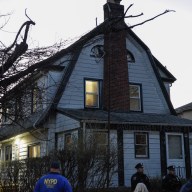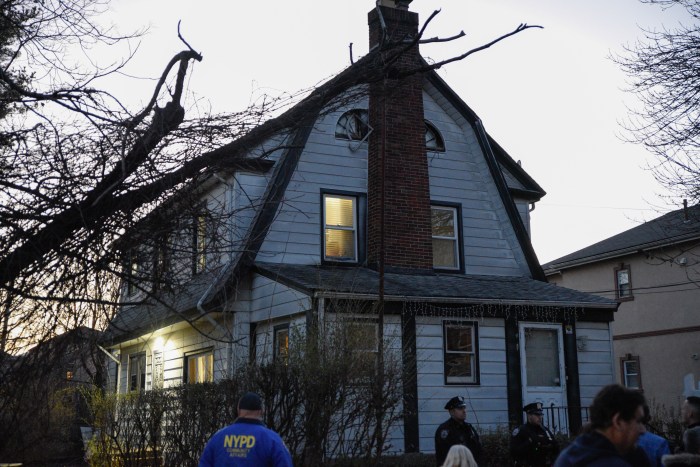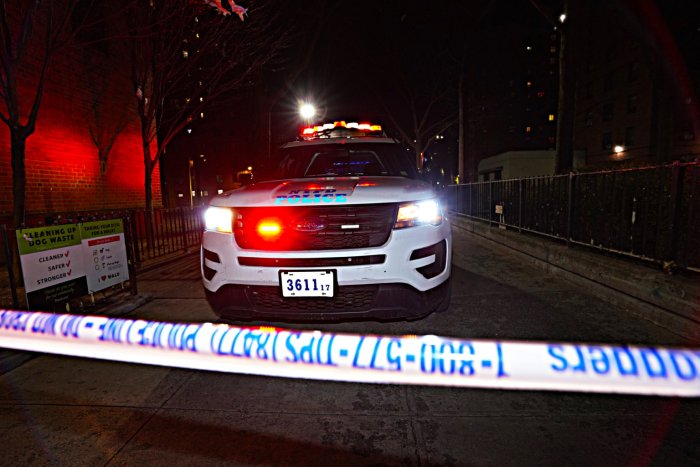By Jeremy Walsh
After announcing that the economic crisis had pushed the state’s budget deficit to an unprecedented $15.4 billion, Gov. David Paterson unveiled a drastically reduced executive budget proposal Tuesday that called for major cuts to school and health care funding and thousands of layoffs at the state level.
The governor made it known that the cuts were necessary to compensate for a combined budget deficit of $1.7 billion for the remainder of the 2009 fiscal year and $13.7 billion for the following year. He said he expected a period of difficult negotiations, but said his office was open to suggestions and hoped the Legislature could pass the budget a month early in March, which he expected would save the state $1.3 billion.
The new budget proposal includes shaving school aid in the 2010 school year by $698 million, or 3.3 percent. New York City, which receives more than 36 percent of the state’s education funding, would get $190 million less in 2010, according to state budget documents.
The proposal also calls for trimming Medicaid spending by $1.3 billion; and eliminating the STAR property tax rebate checks to New Yorkers, a move expected to save $1.4 billion.
State workers would also feel a pinch, with 3,100 positions slated for elimination, mostly through attrition. Some 521 workers would be laid off due to the consolidation of city agencies and dropping of programs, Paterson said.
The governor opened his televised budget address with a bit of levity, recalling Sunday’s incident in Iraq, when a journalist threw his shoes at President George W. Bush.
“I would certainly assert that at the end of this budget presentation, if that’s the most severe punishment I get, I’ll sign for it now,” he said.
But he also reminded New Yorkers of the gravity of the situation, calling it “the worst fiscal downturn in our economy since the Great Depression.”
“The world has changed,” he said. “Unfortunately, we have lived beyond our means.”
The budget also includes measures to help some of those hit hardest by the economic downturn, like establishing a state−subsidized student loan program that would provide $350 million to students of the City University of New York and the State University of New York and increasing the basic welfare grant for each of the three years after 2009.
It adds $3.1 billion in new revenue initiatives, though not through any broad income tax increase. Some notable revenue increases include an 18 percent sales tax on non−diet soft drinks, which Paterson said contribute to obesity. The revenues would go straight to health care funding, he said.
Other initiatives include taxing cable and satellite TV and radio services; taxing personal services like hair salons and credit rating services; and repealing a sales tax cap on gasoline.
Asked by reporters why a broad income tax increase was not part of the proposal, Paterson said it would further hurt the state’s limping economy.
“If you’ve got to tax, you’ve got to tax at a time when your economy is coming back,” he said. “That’s the incentive of those who are being taxed to stay here.”
Paterson got some initial support from state Senate Minority Leader Malcolm Smith (D−St. Albans), who called the governor’s budget “honest and courageous.”
“Times are tough and so are the choices we have to make, but any cuts must reflect the principle of shared sacrifice among all sectors as we work together to return our state to fiscal solvency,” Smith said.
But Paterson remained reluctant to get involved in the scramble between Smith and a group of three Democratic Latino state senators who have refused to endorse Smith for majority leader without major concessions.
“They can feud over who’s going to be the leader, but it is really the 62 members I need to vote for this budget,” Paterson said. “Their response to a crisis will give better indication of who should be leading.”
Education advocates had already begun to lash out at Paterson’s plan Tuesday, pointing to a Working Families Party poll showing that 75 percent of New Yorkers oppose cuts to school aid and 75 percent support income tax hikes on those earning over $200,000.
“Our children’s future and our state’s economic future both require that we balance the budget by asking the wealthiest New Yorkers to pay their fair share, rather than cutting school aid,” said Karen Scharff, executive director of Citizen Action of New York.
Reach reporter Jeremy Walsh by e−mail at jwalsh@timesledger.com or by phone at 718−229−0300, Ext. 154.
































